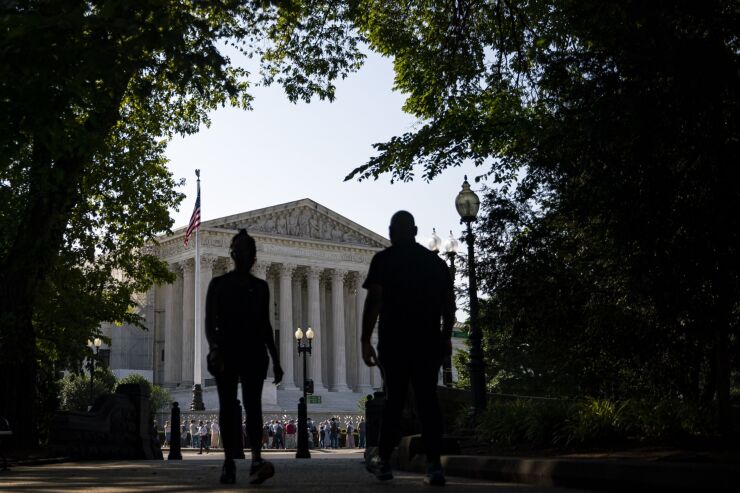The U.S. Supreme Court buttressed the religious rights of workers, telling a lower court to take a fresh look at the case of a Pennsylvania postal carrier who says he was forced out of his job for refusing to work on Sundays.
The justices in a unanimous decision said that under a federal job-discrimination law, employers may have to bear some costs to accommodate the religious needs of workers. The consensus said lower courts have misinterpreted a 1977 decision and should require employers to prove their business would endure "substantial" challenges if they accommodated religious workers.
The 46-year-old decision, Trans World Airlines v. Hardison, had suggested that public and private employers can't be required to shoulder more than a minimal cost. But that isn't the proper test, according to Justice Samuel Alito, writing for the majority. He said employers should have to meet a higher bar for proving "undue hardship" by accommodating a worker's religious needs.
Read more:
Courts should use "common sense" to assess whether religious accommodations create excessive hardship for employers, Alito said.
"An employer must show that the burden of granting an accommodation would result in substantial increased costs in relation to the conduct of its particular business," Alito wrote.
A federal appeals court had upheld a decision tossing out Gerald Groff's lawsuit, saying his request for a religious accommodation was imposing too much of a burden on the Postal Service. The 2-1 ruling said that on more than 20 occasions, the Postal Service couldn't find a coworker willing to fill Groff's scheduled Sunday shifts. Groff resigned in 2019 after a series of disciplinary actions.
The Supreme Court revived the lawsuit and asked lower courts to apply the test they laid out in new opinion.
The high court has expanded faith-based rights in a variety of contexts in recent years. The new decision could make it easier for some workers to receive religious accommodations in the workplace.






